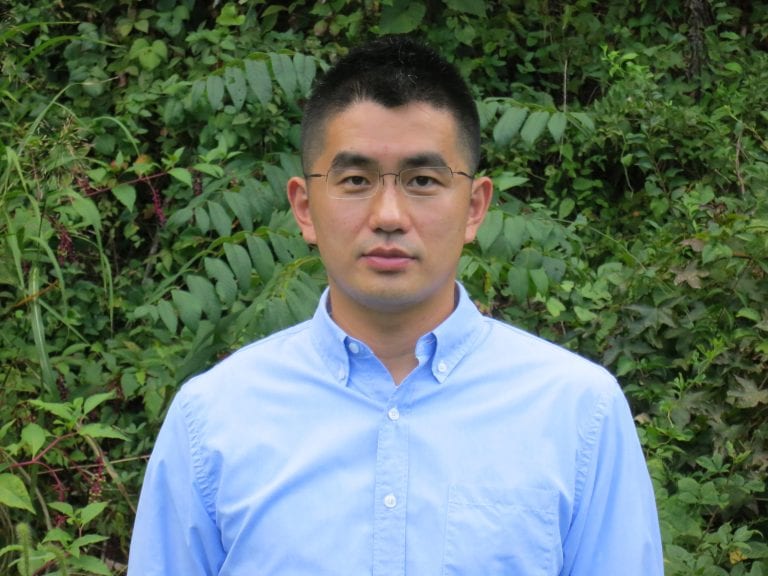A study on peer effects on marijuana use, led by Assistant Professor Li Yi in the Department of Sociology, Faculty of Social Sciences, University of Macau (UM), has been published in Social Science & Medicine, an international interdisciplinary journal. The findings from this study have important implications for drug prevention programmes and policies for young adults.
Social Science & Medicine is a top Social Sciences Citation Index (SSCI)-indexed journal with a five-year impact factor of 4.04 (2018). The journal is currently edited by professors of public health at Harvard University. It ranks No 2 out of 164 journals in Public, Environmental and Occupational Health, and No 1 out of 45 journals in Social Sciences and Biomedical Research, according to Eigenfactor. In terms of impact factor, it ranks No 16 out of 164 journals and No 3 out of 45 journals.
Titled ‘Heterogeneous Peer Effects on Marijuana Use: Evidence from a Natural Experiment’, the study is a collaboration between Prof Li and Dr Guo Guang at the University of North Carolina at Chapel Hill in the United States. Prof Li is the first author and corresponding author. The paper has broken new ground by using a natural experimental design to study peer influence on marijuana use. Past research studies relied on observational data to estimate peer effects. However, observational data cannot distinguish peer influence from peer selection. Marijuana users may self-select marijuana users to be friends (peer selection). If we find that a person is more likely to use marijuana when his or her friend is a marijuana user, it is possible that this is due to peer selection, instead of peer influence. In other words, even in the absence of peer influence, one may still observe a correlation of marijuana use among friends in observational data. Therefore, it is notoriously difficult to examine whether peer influence is a cause of marijuana use with observational data. By using data from randomly assigned college roommates, this paper successfully removed bias caused by peer selection and was therefore able to estimate causal peer effects. Another strength of this study is that peers were not simply treated as a yes-or-no variable—peers who smoked marijuana versus those who did not. Instead, the paper considers heterogeneity in peers and identified four types of peers: desisters (those who used marijuana before college but stopped using it in college), persisters (those who used marijuana both before and after college), new initiators (those who used marijuana after college), and never users.
Findings from the study show that peer influence depends on the respondent’s predisposition to marijuana use. Peer effects only exist among those who used marijuana before college. For respondents who did not use marijuana before college, monthly marijuana use in college was close to zero , and no peer effect was found. Further analysis has revealed that marijuana use is contingent on the roommate’s history of marijuana use. For respondents who used marijuana before college, their college marijuana use decreased substantially when they were assigned desisters as roommates rather than persisters, new initiators, or never users.
Prior to joining UM in 2017, Prof Li worked as a postdoctoral associate in the Population Research Centre at Duke University and a tenure-track assistant professor (lecturer) in the School of Demography at the Australian National University. His work has appeared in a number of top-tier SSCI-indexed journals, including American Journal of Sociology, Social Science & Medicine, Demography, Journal of Marriage and Family, Social Forces, Journal of Health and Social Behavior, Social Science Research, Journal for the Scientific Study of Religion, Biodemography and Social Biology, and Asian Population Studies.
澳門大學社會科學學院社會學系助理教授李毅在國際知名學術期刊《社會科學與醫學》(Social Science & Medicine)發表了一項關於同輩群體如何影響大麻吸食的研究,對預防青年使用毒品有重要的參考價值和積極意義。
《社會科學與醫學》作為一份頂級SSCI期刊,其五年的影響因子為4.04(2018),編輯為哈佛大學公共衛生學院的教授。根據特徵因子,該期刊在公共、環境和職業健康領域的164個期刊中位列第二,在社會科學與生物醫學研究領域的45個期刊中排名第一;根據影響因子則在164個期刊中排名第16,在45個期刊中排名第三。
有關研究《同輩群體對吸食大麻的異質性影響》是李毅與美國北卡羅來納州立大學教堂山分校的國光教授合作,李毅為第一作者及通訊作者。有別於以往使用觀測數據(observational data)的研究,此研究的創新之處在於使用了自然實驗(natural experiment)的數據去研究同輩群體之間的影響。李毅利用了大學生隨機分配室友的數據找出同輩群體是否吸食大麻的原因。由於室友是隨機分配而非自己選擇,所以“物以類聚”的可能性可完全消除,這樣的研究設計可以考察“近朱”會不會造成“赤”,該研究的另一創新之處是考慮了同輩群體的異質性,把同輩群體分為“改邪歸正”(指在大學之前吸食大麻,但上了大學後不吸的室友)、“上大學前後都吸食” 、“上大學以後才開始吸食”和“從不吸食”四類。
結果顯示並非所有的“近朱者”都會變“赤”,而且也不是所有的“朱”都有影響。具體來說,如果一個人在大學之前不吸食大麻,那麼不管他的室友是否吸食,這個人在大學裡不會變成大麻吸食者。而對於那些在大學之前吸食大麻的人,室友才會有影響。只有當他們的室友是一個“改邪歸正”者的時候,他們才會減少大麻的吸食量。如果室友不是一個“改邪歸正”者,那麼室友的影響微乎其微。
李毅於2017年加入澳大。曾任美國杜克大學人口研究中心博士後和澳洲國立大學人口學院終身教職系統的助理教授。他的研究發表在多份SSCI頂級期刊如美國社會學雜誌,社會科學與醫學,人口學,婚姻與家庭雜誌,社會力,健康與社會行為雜誌,社會科學研究,宗教科學研究雜誌,生物人口學與社會生物學,亞洲人口學研究。



